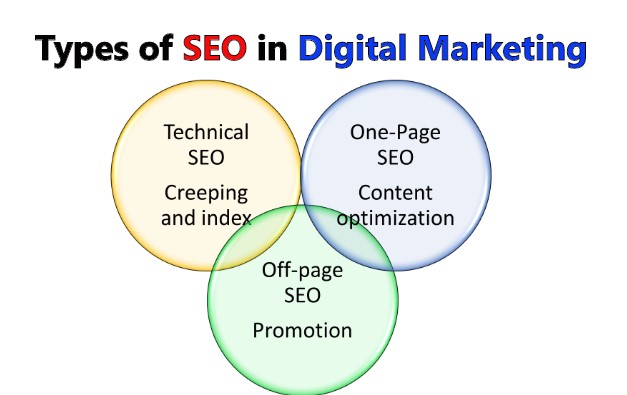In this guide, we’ll not only scratch the surface of SEO but delve deep into the intricacies that can transform your online presence. So, buckle up and get ready to unlock the secrets that will elevate your content to the coveted heights of search engine rankings.
Understanding the SEO Landscape

Before we dive into the nitty-gritty of SEO, it’s essential to understand why Google takes center stage in our discussions. With a staggering 89 billion visits per month, Google reigns as the most visited website globally, commanding a remarkable 91.9% of the search engine market share. While Bing, Yahoo, Amazon, and YouTube also play roles, Google’s dominance makes it our primary focus.
The Magnitude of Google Searches
Google processes a mind-boggling 8.9 billion searches every day, translating to approximately 103,000 searches per second. This immense search volume presents an unparalleled opportunity for content creators and businesses to tap into a global audience actively seeking information, products, and services.
The Psychology of Search
The way individuals use search engines is an extension of the human mind. When someone thinks of a question, product, or destination, Google becomes the conduit to satisfy that curiosity. Understanding the psychology of search is crucial – it’s about being present in the user’s mind between a thought and a potential purchase.
The Role of Google’s Search Engine Robots
Demystifying the process, I explain how Google’s search engine robots crawl and index the internet, determining the authority and relevance of content. This insight underscores the importance of creating valuable, well-structured content for effective SEO.
Evolution of SEO
While acknowledging the evolving landscape of SEO, I emphasize the endurance of fundamental principles. Amidst the quest for new hacks, the age-old principle remains – the best content prevails.
SEO as Digital Real Estate

In the vast landscape of the digital world, the concept of “SEO as Digital Real Estate” goes beyond mere technicalities; it encapsulates the tangible and lasting value of your online presence. Just as physical real estate holds intrinsic worth, strategically positioned content, and well-executed SEO efforts can transform your digital space into a valuable asset.
Transitioning from Physical to Digital Real Estate
Historically, businesses invested in physical real estate – tangible assets like storefronts or offices. However, the digital age introduces a new concept: digital real estate. Ranking on Google’s first page is a form of digital real estate, and its value surpasses that of many physical assets. A well-ranked blog post can generate income equivalent to multiple apartment buildings.
The Unique Value of Digital Real Estate
Owning digital real estate is dynamic and enduring. Unlike physical assets that depreciate, well-ranked content can maintain its value over time. For instance, a single blog post can continue to generate substantial income, emphasizing the unique and lucrative nature of digital real estate in the SEO landscape.
Backlinks as Building Blocks
In the world of digital real estate, backlinks are the building blocks that enhance the authority and credibility of your online properties. Quality external links from reputable sources act as endorsements, signaling to search engines that your content is valuable and trustworthy.
Content as Prime Real Estate
Each well-crafted piece of content on your website represents a plot of prime digital real estate. Optimizing this content with strategic keywords, relevant information, and a user-friendly structure ensures it stands out in the vast digital landscape.
The Power of Visibility
Just as a prime location in the physical world attracts more attention, a top-ranking position on SERPs ensures greater visibility for your digital content. The higher your content appears in search results, the more likely it is to be seen by users actively searching for information, products, or services related to your niche.
Longevity and Appreciation
Unlike physical real estate that may depreciate over time, well-optimized and valuable content tends to be appreciated in the digital marketing realm. A blog post or article that consistently ranks high on relevant search queries can continue to attract organic traffic long after its initial publication. This enduring value makes digital real estate a strategic and sustainable investment.
Decoding the Secrets of Google’s Algorithm

Mastering SEO requires a holistic approach, from understanding the psychology of search to implementing on-page and off-page strategies. Stay tuned for the subsequent parts of this course, where we’ll delve deeper into each aspect, providing actionable insights to propel your content to the top of search engine results.
The Role of Search Engine Robots
Google’s search algorithm relies on search engine robots or spiders that crawl the internet, indexing every page’s content and links. This process involves scrutinizing written words, assessing link relationships, and gauging content authority. Understanding this mechanism is pivotal to creating content that aligns with Google’s criteria for ranking.
The Evolution of SEO
While SEO continually evolves, there are timeless principles that withstand the test of time. Amidst the buzz about new tactics and algorithms, the bedrock of the best SEO company remains to create superior content. Quality content that addresses user needs, backed by fundamental business principles, stands as the pillar of enduring SEO success.
The Two Main Paths

Delving into the heart of SEO, I introduce the two main paths – on-page SEO and off-page SEO. On-page SEO involves keyword research, content creation, blogging, and publishing articles, while off-page SEO focuses on building links through guest blogging and partnerships. And there is technical SEO as well in which we do the technical part of the SEO.
On-Page SEO: Crafting the Perfect Content
On-page SEO involves the meticulous art of crafting content that resonates with both users and search engines. From keyword research to content creation, blogging, and article publishing, this path is about optimizing what resides on your website. It’s not just about a homepage – it’s about each piece of content that Google can rank.
Off-Page SEO: Building the Foundation
Complementing on-page SEO is its counterpart, off-page SEO. This path centers around building external links to your website. Through link building, guest blogging, and partnerships, off-page SEO aims to enhance your website’s authority and credibility. Balancing both on-page and off-page strategies is the key to unlocking the full potential of SEO.
The Heart of SEO: Keywords

Emphasizing the centrality of keywords, I elucidate how they serve as the foundation for SEO success. Understanding user search behavior and leveraging data-driven insights are key to optimizing content for search engines.
Unveiling the Power of Keywords
Keywords are the heartbeat of SEO – they encapsulate what users type into search engines. The diversity in search behavior means users phrase their queries differently. Effective keyword research involves understanding these variations and leveraging data-driven insights to optimize content. The strategic use of keywords amplifies content visibility on search engine results pages.
The Business Value of Keywords
Not all keywords are created equal in the business realm. Some keywords hold more value than others, and determining this value requires data-driven analysis. Recognizing where the majority of your target audience’s searches lie allows you to strategically position your content for maximum impact and business returns.
Conclusion
In this comprehensive guide, we’ve scratched the surface of SEO’s vast landscape. From understanding the psychology of search to mastering on-page and off-page strategies, you’re now equipped to embark on your SEO journey. Remember, SEO is a dynamic field, and continuous learning and adaptation are key to staying ahead in the digital realm.
Before we part ways, consider exploring my free class linked in the description. It’s a treasure trove of insights, offering 60 minutes of valuable training. If the world of blogging and SEO beckons, you can further enrich your knowledge through our online coaching program. Click the link in the description, and let’s elevate your SEO game together. Happy optimizing!
Frequently Asked Questions
1. What is SEO, and why is it important for my online presence?
SEO, or Search Engine Optimization, is the practice of optimizing your online content to improve its visibility on search engine results pages (SERPs). It’s essential for enhancing your website’s chances of being discovered by a wider audience, ultimately driving organic traffic and improving your online visibility.
2. Can I succeed in SEO without technical expertise?
Absolutely! While some technical aspects exist in SEO, the fundamentals revolve around creating valuable content and building quality links. Many successful SEO practitioners prioritize understanding user intent, conducting keyword research, and consistently producing high-quality content.
3. How long does it take to see results with SEO?
SEO is a gradual process, and the timeline for results varies. Factors such as competition, content quality, and industry can influence the speed of success. Generally, significant improvements may be noticed in a few months, but achieving and maintaining top rankings is an ongoing effort.
4. Is off-page SEO as important as on-page SEO?
Yes, both on-page and off-page SEO are crucial components of a comprehensive SEO strategy. On-page SEO focuses on optimizing your content and website structure, while off-page SEO involves building external links to your site. A balance between the two is essential for achieving sustainable and impactful SEO results.
5. How often should I update my SEO strategy?
SEO is dynamic, and staying relevant requires regular updates. Monitoring industry trends, and algorithm changes, and adjusting your approach accordingly ensures that your strategy aligns with current best practices. Regularly auditing your content and backlink profile also contributes to long-term SEO success.



